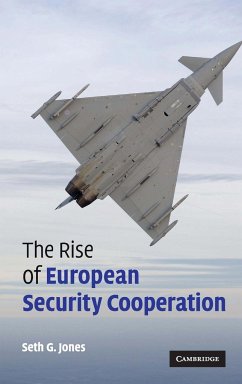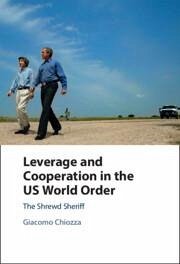
The Rise of European Security Cooperation
Versandkostenfrei!
Versandfertig in 1-2 Wochen
111,99 €
inkl. MwSt.
Weitere Ausgaben:

PAYBACK Punkte
56 °P sammeln!
One of the most striking developments in international politics today is the significant increase in security cooperation among European Union states. Seth Jones argues that this increase in cooperation, in areas such as economic sanctions, weapons production and collaboration among military forces, has occurred because of the changing structure of the international and regional systems. Since the end of the Cold War, the international system has shifted from a bipolar to a unipolar structure characterized by United States dominance. This has caused EU states to cooperate in the security realm...
One of the most striking developments in international politics today is the significant increase in security cooperation among European Union states. Seth Jones argues that this increase in cooperation, in areas such as economic sanctions, weapons production and collaboration among military forces, has occurred because of the changing structure of the international and regional systems. Since the end of the Cold War, the international system has shifted from a bipolar to a unipolar structure characterized by United States dominance. This has caused EU states to cooperate in the security realm to increase their ability to project power abroad and to decrease reliance on the US. Furthermore, European leaders in the early 1990s adopted a 'binding' strategy to ensure long-term peace on the continent, suggesting that security cooperation is caused by a desire to preserve peace in Europe whilst building power abroad.














